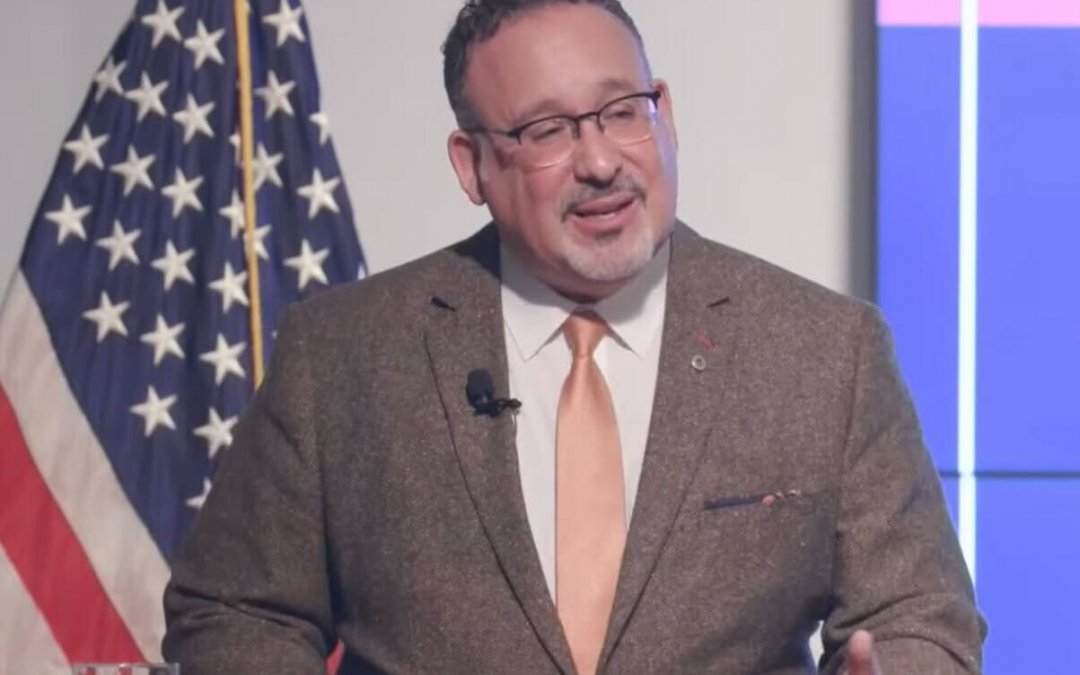WASHINGTON — U.S. Department of Education Secretary Miguel Cardona delivered an address Tuesday afternoon about the department’s new initiative to transform education and create long-term change.
The department’s focus remains aligned with the priorities Cardona outlined last year: promoting academic excellence for every learner, improving conditions for learning and further preparing the nation for global competitiveness.
“Investing in our children is no different than investing in defense,” Cardona said. ”Both protect our tomorrow.”
To support the educational advancement of students, Cardona said schools need to equip them with the skills necessary for high-paying jobs and offer dual enrollment courses in the 11th grade to make college and career pathways more visible.
He also said schools should provide financial literacy and high-level math courses to prepare students for STEM careers.
According to the OECD, students in the U.S. performed below average in mathematics in the most recent Programme for International Student Assessment (PISA), which is an international study that began in 2000 to evaluate education systems worldwide.
“It’s unacceptable,” Cardona said in response to the low test scores.
The department also plans to provide additional opportunities for students to study a second language, as only 21.6% of people in the U.S. are bilingual, according to the U.S. Census Bureau.
“Let’s look at our students in bilingual programs as gifted with assets that we want other students to have,” Cardona said. “Being bilingual and bicultural is a superpower.”
He added that teachers are imperative to increasing student achievement, and part of it starts with addressing the ongoing teacher shortage. The department has provided $2.6 billion to prepare, support and retain high-quality educators.
“Teachers help children discover their own gifts, in some cases, when they lack confidence or struggle to learn,” Cardona said. “It is the best profession, and we at the Department of Education will do all we can to ensure it is valued.”
According to a report released by the Economic Policy Institute, the average weekly wages of public school teachers increased by merely $29 from 1996 to 2021, while the weekly wages for college graduates increased by $445 within the same period.
The department is working to increase transparency on the teacher pay issue and has called on states and districts to raise salaries to a competitive level.
“If you believe every child in this nation deserves a shot, join me on this journey,” Cardona said.


